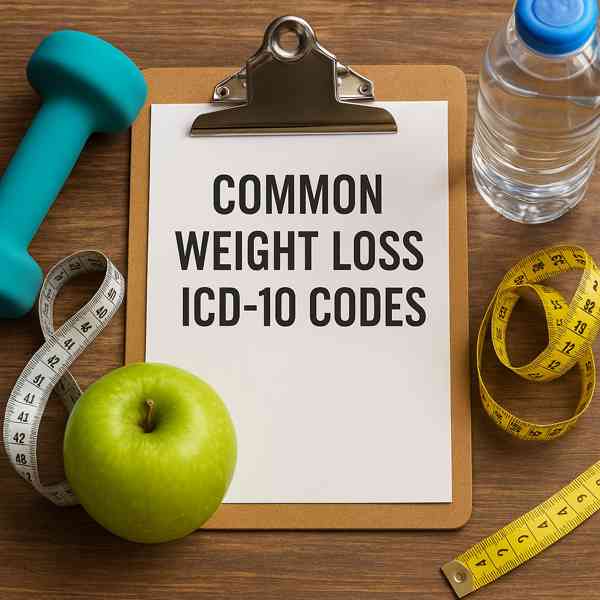ICD-10 Codes for Weight Loss
ICD-10 Codes for Weight Loss
Blog Article

In the world of healthcare, accurate coding is essential — especially when it comes to documenting weight loss.
In this article, we’ll break down what ICD-10 codes are used for weight loss, how to apply them, and what you should know for accurate recordkeeping.
ICD-10 Basics Explained
It’s a standardized system used worldwide for classifying medical conditions and diseases.
Each diagnosis is assigned a unique code, which is used for:
- Insurance billing and reimbursement
- Organizing medical statistics
- Communicating diagnoses between professionals
Which ICD-10 Codes Apply to Weight Loss?
Weight loss can be intentional or unintentional — and each situation has a specific ICD-10 code.
Key codes include:
- Used when weight loss is unexplained or unintentional
This code applies when a patient loses a significant amount of weight without trying, often due to illness.
- Used when weight loss is guided by professional support
Often applied in cases involving nutritional intervention or guidance.
- Z72.4 – Inappropriate Diet and Eating Habits
- Used in contrast to weight loss when monitoring obesity treatment progress
- Applied in extreme undernutrition cases, often linked with weight loss
Documenting Unexplained Weight Loss Properly
R63.4 is the most commonly get more info used ICD-10 code for weight loss, but it must be applied correctly.
- The patient reports significant, unintentional weight loss
- Weight loss is a primary symptom in evaluation
- Used as part of diagnostic workup
Important Notes for Coding Accuracy
To avoid claim denials or coding errors:
- Always specify if weight loss is intentional or not
- Include context like depression, cancer, or malabsorption
- Support your claim with a full picture
- Avoid using obesity and weight loss codes together unless clinically justified
Supporting Preventive Care Through Proper Codes
If you’re coding for a structured weight loss program or health coaching, consider using these Z-codes:
- Z71.3 – Dietary Counseling
- Can apply to coaching or fitness counseling
- Used in early evaluation settings
These codes can support insurance claims for wellness, prevention, and obesity treatment plans.
Ensure Documentation is Clear and Compliant
Using the right ICD-10 code for weight loss is fundamental for clear documentation and proper billing.
To summarize:
- Most common diagnosis for unknown causes
- Z-codes = Counseling, prevention, and health maintenance
- Use when weight loss is tied to illness
Always consult coding guidelines and payer policies when applying ICD-10 codes. Report this page